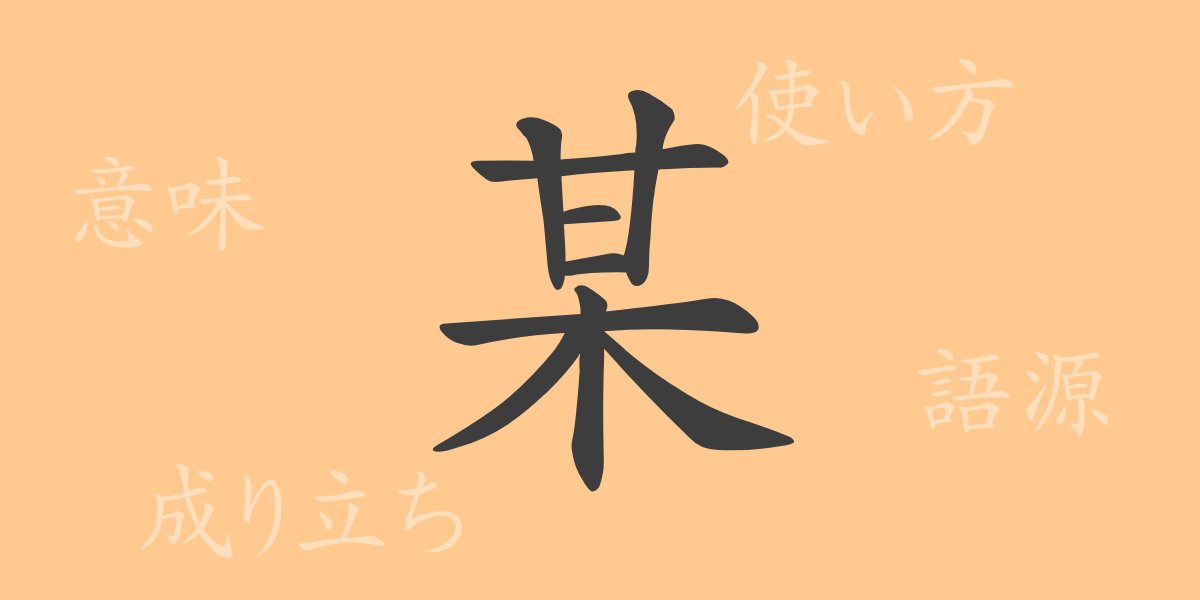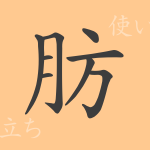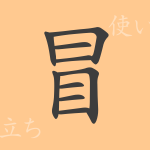Kanji (かんじ) deeply rooted in Japanese culture, each character carries a history and meaning. The 常用漢字 (じょうようかんじ) “某” (ぼう) is no exception. In this article, we will delve into the origins, meanings, usage, readings, and related idiomatic expressions and proverbs of the kanji “某” (ぼう). Let’s explore the rich world of “某” (ぼう), often overlooked in daily life.
The Origin of 某 (ぼう)
The origin of the kanji “某” (ぼう) traces back to ancient China. It is a phono-semantic compound character, combining “木” (き) meaning “tree” and “毛” (もう) representing the sound. “某” (ぼう) evolved as a word used to refer to specific persons or things without naming them directly. This usage expanded to indicate unspecified persons or things, and it is widely used in modern Japanese with this meaning.
Meaning and Usage of 某 (ぼう)
The kanji “某” (ぼう) is used when referring to specific persons or things without explicitly naming them. For example, it is commonly used in documents where naming is inappropriate or unknown, such as “某氏” (ぼうし) for “Mr. X” or “某社” (ぼうしゃ) for “Company X”. Additionally, “某” (ぼう) is used in legal documents and news reports where anonymity is required.
Reading, Stroke Count, and Radical of 某 (ぼう)
The kanji “某” (ぼう) holds a unique presence in the Japanese language.
- Reading: The on’yomi (音読み) is “ボウ” (ぼう), and there is no kun’yomi (訓読み).
- Stroke Count: It has a total of 9 strokes.
- Radical: It belongs to the 木部 (きへん) radical category.
Idioms, Proverbs, and Expressions Using 某 (ぼう)
There are numerous idioms, proverbs, and expressions that include “某” (ぼう). For instance, “某国” (ぼうこく) is used to refer to a country without specifying its name, and “某日” (ぼうじつ) is used to refer to a date without specifying the exact day. These expressions carry an abstract meaning, yet they have the power to evoke specific subjects depending on the context.
Summary of 某 (ぼう)
The kanji “某” (ぼう), with its simple yet mysterious resonance, adds depth to our language. This kanji, used to refer to unspecified persons or things, is invaluable in situations requiring careful word choice. Many readers may have realized the multifaceted charm of “某” (ぼう) through this article. We hope this serves as a reminder of the profound depth of the Japanese language.

























